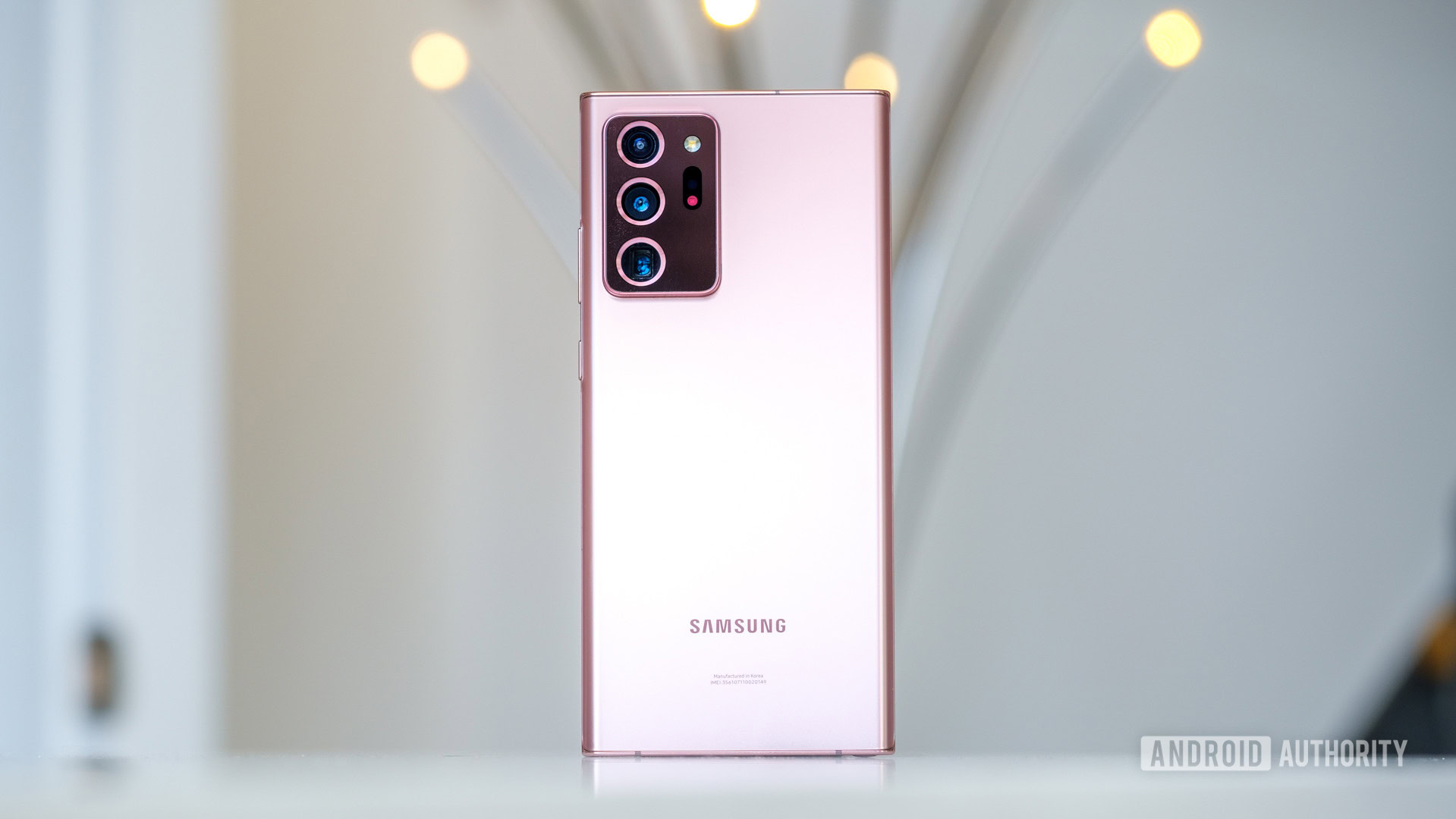Affiliate links on Android Authority may earn us a commission. Learn more.
Tested: iPhone 12 smokes the Galaxy Note 20 Ultra in real-world speed
Published onApril 27, 2021
- Apple’s iPhone 12 has outrun Samsung’s Galaxy Note 20 Ultra by a clear margin in a realistic speed test.
- It was consistently faster in CPU and GPU tests.
- You can chalk up a lot of it to Apple’s 5nm A14 Bionic chip.
Samsung’s Galaxy Note 20 Ultra is a beast of a phone in most respects between its huge screen, capable cameras, and gobs of memory, but how fast is it compared to Apple’s latest mainstream phone? Not very, it seems. Gary Sims has pitted the Galaxy Note 20 Ultra against the regular iPhone 12 in his realistic Speed Test G benchmark, and the results are… not pretty.
Simply put, the iPhone 12 obliterated the Galaxy Note 20 Ultra across the board. Apple’s device claimed the largest advantage in the CPU-oriented test, where it finished in 32.5 seconds versus Samsung’s 38. It also won by clear margins in GPU and mixed-use tests despite running visuals at higher resolutions (Note was dialed down to 1080p). The iPhone 12 finished the whole speed test in 1 minute and 3 seconds. The Note 20 took nearly 14 seconds longer.

Speed Test G focuses primarily on a phone’s ability to run apps rather than loading them. This is what makes this test special. It’s a true test of processing power rather than memory and storage speeds. In this case, you’re seeing how well the A14 Bionic chip and iOS stack up against a Snapdragon 865 Plus running Android.
Sims didn’t outline just why the iPhone 12 took a commanding lead over the Galaxy Note 20 Ultra, but the story is likely a repeat of what you’ve seen with other speed tests. The A14 Bionic is the first production 5nm chip. The Snapdragon 865 Plus has to “settle” for a less efficient 7nm design. There’s little doubt that Apple has an advantage in newer technology.
This also underscores an issue with price-to-performance ratios in Android phones. The Note 20 Ultra normally costs $1,300. The iPhone 12 costs $799. You’re clearly paying for more than just a fast chip with Samsung’s handset, but this test suggests Apple once again has the better proposition if you’re focused on speed and unwilling to make the feature sacrifices that come with something like the OnePlus 8T.